By Supriya
For the innumerable participation certificates this young woman brought home as a student, her father termed her ‘mediocre’. “I used to participate in everything! But never topped anywhere,” reveals Tamanna Sharma unabashedly. She divulges the details of her journey from being an ‘average’ person to who she is today.
Tamanna Sharma turned out to be anything but mediocre as an adult. She is a woman on a mission, working for the cause of environmental sustainability. Her journey has been interesting. She pursued journalism from Delhi University, became an activist and even founded a sustainable events company. Tamanna has learnt many lessons on the way to becoming the independent activist that she is today.
Finding her Calling
As a college student, Tamanna was never weary of trying new things. She was not really into ‘studying’ and rather spent her time working. At times, being under qualified did not stop her from pursuing things she was interested in.
“I started my first internship at The Hindu in 2009 after my first semester. On the third day, the editor realised that I was not a 3rd-year student!” she says, smugly recalling how she managed to finish that internship, after requesting her seniors.
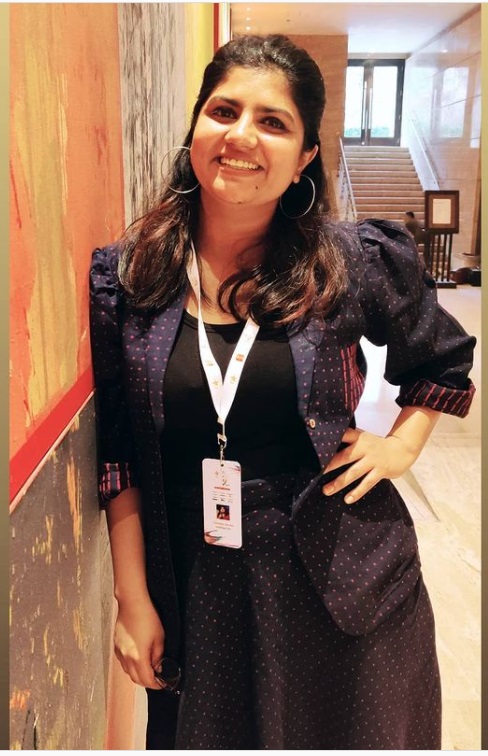
Tamanna credits that period of early adulthood for helping her find her beat. It significantly shaped her as an individual as well. “Those years were about exploring. I was curious and also had the feeling that I might not be good enough at anything. I wanted to be part of something I would be good at,” she mentions, reminiscing about the period when she also worked for a Telugu newspaper to try her hand at political reporting.
Towards the world of Environmental Issues
It was not until her final year at Kalindi College that she progressed towards environmental issues. She started volunteering for the Indian Youth Climate Network.
Her Current Affairs professor Abhay Chawla also helped her come face to face with the severity of environmental deterioration. “He would give us topics to write and research on. One day he asked me casually to go to the Yamuna to work on my next topic,” Tamanna says, also adding that she considered him as one of her mentors.
She went to the riverside. What followed was Tamanna discovering the catalyst that would turn her into a climate-conscious person. “That was quite a shock! I am from Himachal and had seen only clean rivers before. Here I saw sludge and sewage. It was very disturbing to see the state in which a natural resource was. That was the turning point for me,” she says looking back.
Instead of just cribbing and then forgetting about it like any other average person, she decided to do something about it. “Sitting around was not an option for me after that,” she says with a smile thinking of her moment of epiphany.
Taking a Break
By 2013, Tamanna had gained experience of around two to three years of working in the field of environmental issues. She had worked with a private company, schools, and even sold composters to people. It was the experience of working with social enterprises that helped her gain perspectives that were solution-based.
This was enough to ignite a desire to work for the cause of the environment, but it also wore her down, she reveals. She decided to take a break and detach herself. “I was not able to work. I was just depressed,” she explains. Tamanna was concerned about being swallowed up by the work and being crushed under the weight of the cause that she worked for. She believes one should not let their work disrupt their personality in life. “I was centred around people and their achievements,” she comments, hinting at the fact that working for the environment is bigger than any individual’s accomplishments.
“For me taking a break meant meeting myself again. Realigning my thoughts and centering myself,” clarifies Tamanna. It was only after being on a break for a year and a half that she started her sustainable events company Earthling First. Her ideology is based on the fact that we were all a part of a big planet. A planet which we are responsible for taking care of as its inhabitants; the earthlings.
Till then she only had an idea about what areas concerning the environment she wanted to focus on. “I wanted to work fast. Enter the economy and disrupt it. That’s why I started a sustainability consultancy and waste management service,” she explains.
Earthling First
Public events are a big source of non-degradable waste. Earthling First offered solutions to this problem. They provided companies with options to organise events that were greener and less harmful to the environment.
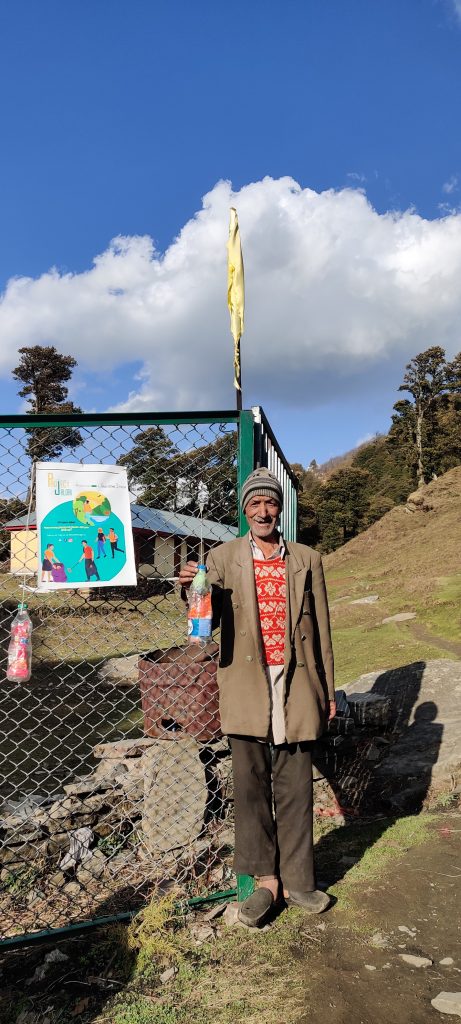
“Within a year, we had assignments in 8 different cities across the country. By the third year, we had assignments in 20 to 22 cities,” she says, also highlighting how the market of sustainable event companies grew in those 3 years. “Today there are companies in every city that organise green events, green weddings and so on,” Tamanna says proudly.
One of the events that Tamanna loved organising was for a German company. “Most clients would just ask me to take care of the garbage and waste at the end of their events. But these people wanted me to do a proper sustainability consultancy,” the entrepreneur shares.
“I got to experiment with the chef and curated the whole menu. I suggested using millet, which is the most climate-resilient crop,” she further elucidates. She also created lanyards for the attendees of the event. They were made using the strings found in laundry bags and rice sacks. The attendees could take back the lanyards and use them as frames. This was one of her ideas to reduce the waste from the event.
Tamanna has never been hesitant to share ideas with others who were interested in similar work. She understands that the purpose is much bigger than her and what she gains. Unfortunately, the pandemic that started last year put an end to public events. This meant Earthling First also had to stop its functions that catered to the events sector. Tamanna decided to move forward, giving her company a new domain to function in.
Moving Ahead in a Pandemic
“When the pandemic spread, I was already thinking of doing rural projects. But I did not know what exactly I wanted to do,” she confesses. With some introspection, she realised there was something she could work on. “I thought of tourism which has become a nightmare,” Tamanna remarks.
She thought of targeting a place that was becoming like Manali. A place that could eventually lose its ecological balance, because of the ‘advancement’ in Tourism. Just like the popular tourist destination has over the years. She decided to work on an experimental model and a case study of the potential area. This is how her Project Jalori came to be.
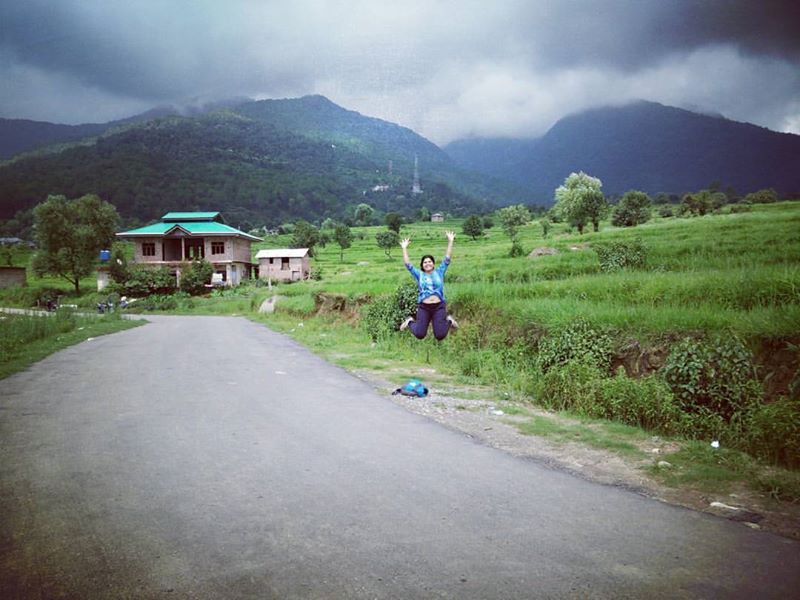
Project Jalori – Protecting Jalori Pass
“Project Jalori is based in Jalori pass, located in Kullu and Mandi districts in Himachal Pradesh. It is 10,000ft above sea level,” she informs. The area became a famous tourist spot because scenes from the movie Yeh Jawani Hai Deewani were shot there.
The locals in the area realised the potential tourism had in bringing them economic opportunities. “Many people come there now since it is easily reachable by car. One doesn’t have to walk or trek up to 10,000ft. They can arrive in their car and trek to other places there,” she says, describing the easy accessibility of Jalori.
Project Jalori covers an area of almost 8 to 9 kilometres in Jalori pass. This includes the trails, the local dhabas and cafes. It also comprises the destinations tourists visit and hike in. Tamanna spent the months of September and October in Jalori last year, living in a tent at one of the camps and conducting her research and survey.
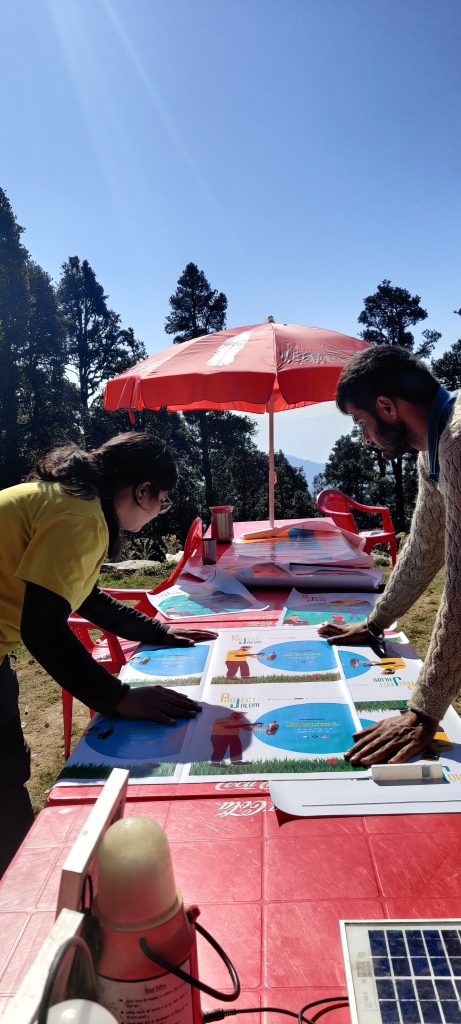
To become familiar with the locals and understand their concerns, Tamanna would hike the area every second day. She would meet a new person every time and made sure to spend as much time with them exchanging ideas. “Instead of me telling them about my agenda, I was mostly asking them questions. What were their observations? What did they think about tourism there and so on,” she recalls.
Cleaning up the mountains!
Tamanna’s aim is to make sure that the tourism that flourishes there is eco-friendly. For this, she educated the local stakeholders about the ways they could manage waste efficiently. They were taught how to segregate plastics and also how to store them in pick-up bags so that they would not take too much space.
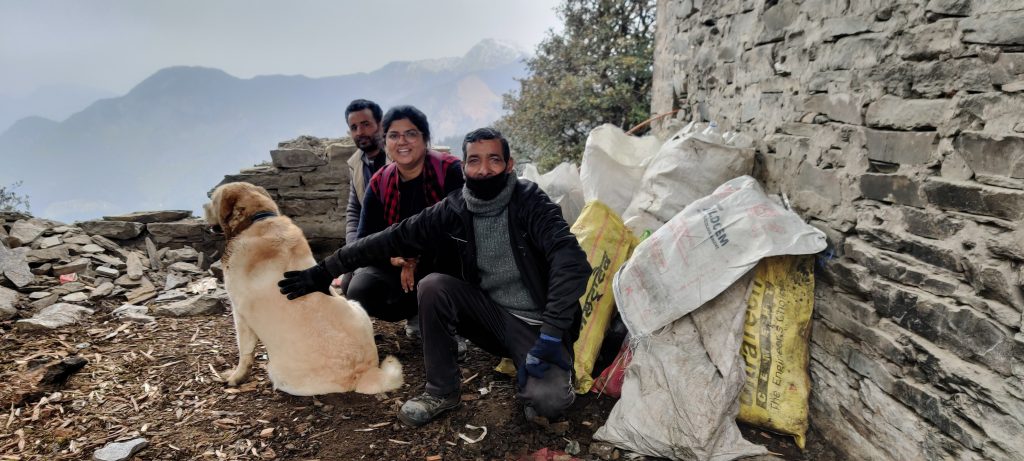
Within those two months of research, a plan was ready for the project to unfold. She coordinated with the forest department and the block development officer to implement her ideas. The authorities were to make sure they provided regular waste collection services and other support.
The second wave of the pandemic that hit delayed the implementation of the plans they had drafted. “Phase 3 was to begin in April. We had to start a few cleanups on the trail with the locals,” Tamanna shares.
Walking the Talk on the Trails
The idea was to walk along the trails and pick up the trash lying around. Here, Tamanna made a little tweak to the way people usually collect trash. “One person is allowed to collect only one type of waste material, which helps with reducing the time we spend in segregating the waste after collection,” shares Tamanna cheerfully.
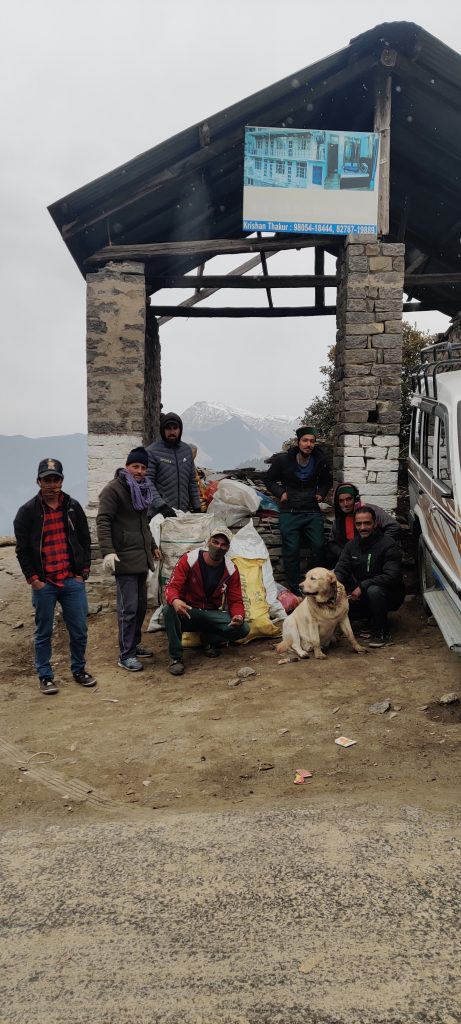
Then, to collect the segregated waste, she had arranged for a vehicle from the BDO. “We will also keep a track of the amount of waste collected by each person,” she informs. She also hopes to provide people with incentives for their proactiveness by tapping into existing incentive programmes of the government.
Apart from waste management, Tamanna has also targeted changing how tourists spend time in Jalori. “I am introducing a small business project. I will work as a tour guide for the next few months and teach tourists about executing a zero-waste tour,” reveals Tamanna.
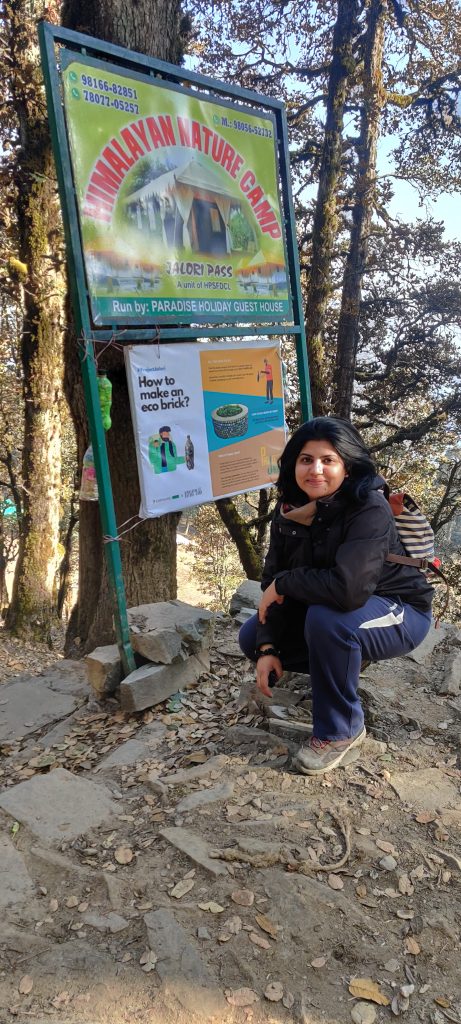
She also hopes to set up a booth for the tourists. Here she will interact with them and show them how to make ‘eco bricks’ with bottles. The deadline to study and implement her plans is in October, by which time she hopes to clean up the place and have it up and running. Tamanna has moved her base from Delhi to Jalori recently to concentrate on her project completely.
I Dream Zero
When she is not caught up with Project Jalori, she spends her time spreading awareness about environmental issues from her Instagram handle @idreamzero. Her experience from her early years in journalism and the four years she spent doing night shifts at All India Radio have come into use now.
“I do a podcast called ‘India’s Environment Today’ every week. Recently I did one on lightning; the cases that are rising in India, why are they rising and how is it connected to the climate and so on,” she explains.
Every Effort Counts
Tamanna believes that every individual effort counts in making this world sustainable. There are choices each one of us can make every day that can help with improving the situation. “Consumption would be a good way to start. Keeping track of what one consumes and the garbage that is generated because of that. If people don’t have the time to look at their consumption, then they can start with waste management,” she suggests. “Fifty per cent of the garbage that goes in the landfill is organic,” she informs further.
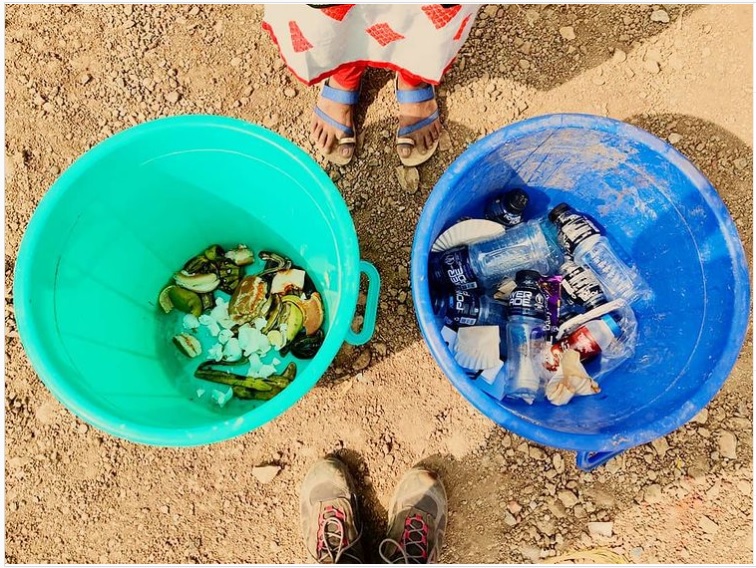
We can start by taking care of our food waste at home, by segregating it from the dry waste, or by even using composters. “Imagine taking away fifty per cent of the landfill, it will become half. This action from an individual has a direct impact on a very large scale. Imagine somebody doing this for a year!” exclaims a hopeful Tamanna.
When people start demanding better options on a large scale, there will be change. “We are going on the right track. The market has changed. Colgate is changing their packaging because its customers are asking for it. Starbucks has changed how they do things. McDonald’s is trying as well,” she says, iterating how the biggest companies are also trying to change for the better. “Only Amazon is getting away… to space!” she comments slyly.
Growing as a family
It has not been easy for Tamanna to walk on this path that she has chosen. Her family has been supportive since they also realised this was something she was good at. Her father did wish for her to stick with journalism but now has grown into her biggest cheerleader.
“It is not easy for them. I’m 30 and unmarried. There are societal issues that come along with it,” she mentions with a hearty giggle. Her family is quite encouraging about her work. Bowing down to societal norms is not a norm at her place. “To grow ourselves, we need a conducive environment. You need family members who are also willing to grow as much as you are,” Tamanna shares.
Humour and its Power
Working in this field can take a toll on any person. “You end up becoming bitter because people are not listening and you don’t take part in their joys. You have other things to concentrate on,” she explains. She also advocates using humour to spread her message. Instead of being critical, she acknowledges the irony of it as well, considering the seriousness and scale of environmental deterioration.
“When you talk of something serious, the attention span of the listener will be less. But if you joke with them, then they will remember it and they might go and retell the joke later on,” says a hopeful Tamanna.
Finding Peace
Over the years, from being an angry woman, Tamanna has evolved into someone who is much more peaceful and not in a hurry to bring quick change in people.
“This has become clear to me in the past year. As much as I care about the world outside, I also care about the world within me. What I want from the world outside, is also what I should expect from the world within,” concludes the not-so-mediocre Tamanna.
